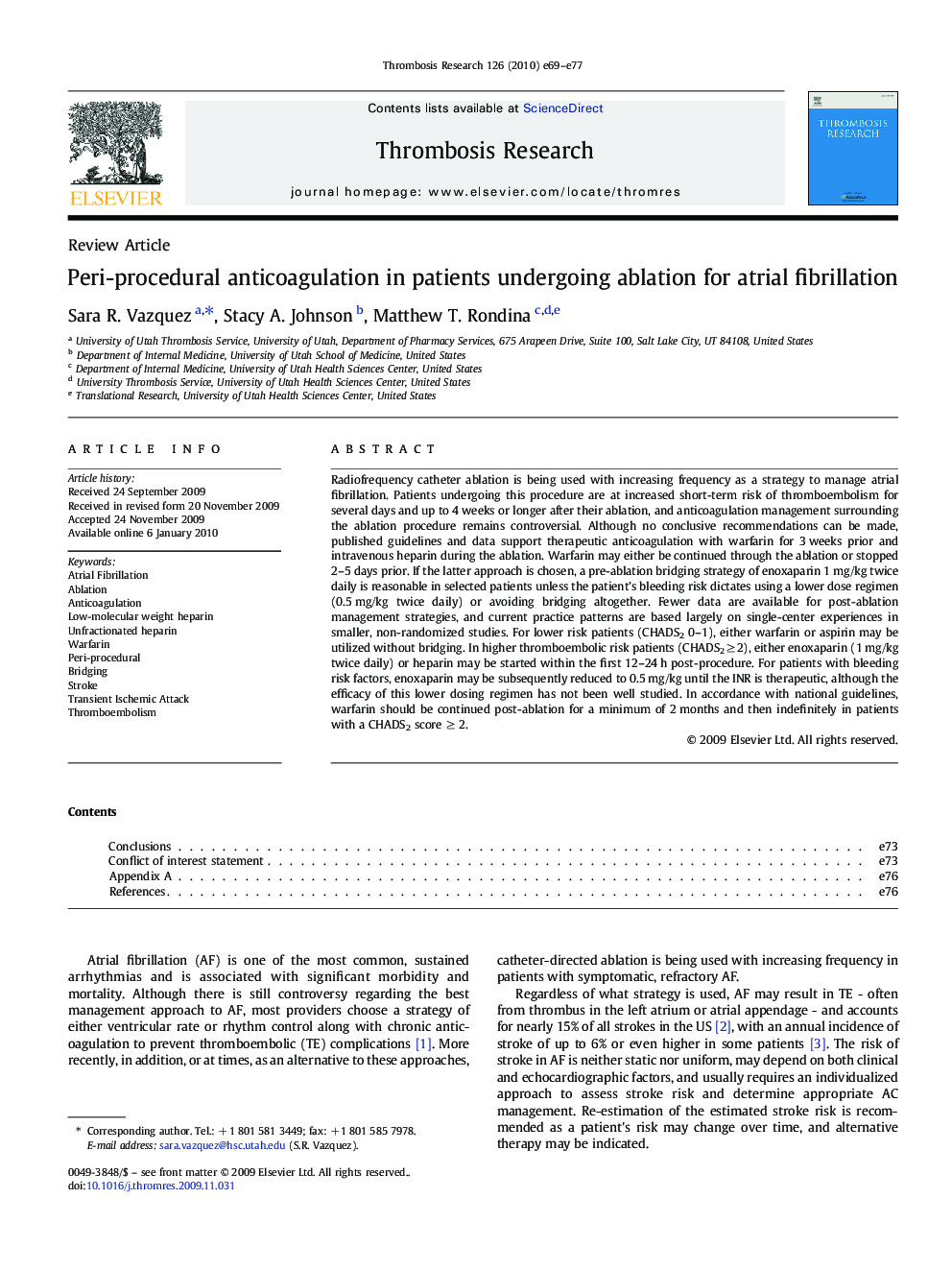| Article ID | Journal | Published Year | Pages | File Type |
|---|---|---|---|---|
| 6003103 | Thrombosis Research | 2010 | 9 Pages |
Radiofrequency catheter ablation is being used with increasing frequency as a strategy to manage atrial fibrillation. Patients undergoing this procedure are at increased short-term risk of thromboembolism for several days and up to 4 weeks or longer after their ablation, and anticoagulation management surrounding the ablation procedure remains controversial. Although no conclusive recommendations can be made, published guidelines and data support therapeutic anticoagulation with warfarin for 3 weeks prior and intravenous heparin during the ablation. Warfarin may either be continued through the ablation or stopped 2-5 days prior. If the latter approach is chosen, a pre-ablation bridging strategy of enoxaparin 1 mg/kg twice daily is reasonable in selected patients unless the patient's bleeding risk dictates using a lower dose regimen (0.5 mg/kg twice daily) or avoiding bridging altogether. Fewer data are available for post-ablation management strategies, and current practice patterns are based largely on single-center experiences in smaller, non-randomized studies. For lower risk patients (CHADS2 0-1), either warfarin or aspirin may be utilized without bridging. In higher thromboembolic risk patients (CHADS2 â¥Â 2), either enoxaparin (1 mg/kg twice daily) or heparin may be started within the first 12-24 h post-procedure. For patients with bleeding risk factors, enoxaparin may be subsequently reduced to 0.5 mg/kg until the INR is therapeutic, although the efficacy of this lower dosing regimen has not been well studied. In accordance with national guidelines, warfarin should be continued post-ablation for a minimum of 2 months and then indefinitely in patients with a CHADS2 score ⥠2.
